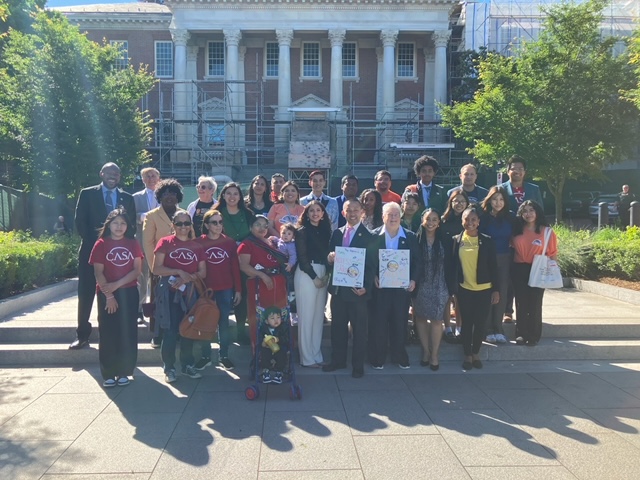Tim Curtis
November 20, 2018
Maryland lawmakers plan to introduce legislation again next year that would create a state-level individual mandate, a potential long-term fix for Maryland’s individual insurance market.
Under the proposal, funds raised by the individual mandate, a tax on people without health insurance, would be used to help people purchase health insurance, reduce premiums and pay for administrative costs.
“Instead of simply asking those folks to pay a penalty to the state of Maryland, we want to use those penalty dollars to make a down payment to get health insurance for those same folks and their families,” Sen. Brian Feldman, D-Montgomery, said.
Last year’s federal tax legislation effectively eliminated the federal individual mandate. There is no penalty for not having insurance in 2019.
Feldman will sponsor the legislation with Del. Joseline Peña-Melnyk, D-Prince George’s and Anne Arundel. The two sponsored similar legislation last session but said that their bill was set aside to work on other bills that helped to create a Maryland reinsurance program.
That reinsurance program, which was supported by Gov. Larry Hogan and received federal approval over the summer, has been credited with reducing premiums on Maryland’s individual market for next year.
But the funding mechanism for the program is seen as a short-term fix. Feldman and Peña-Melnyk chair Maryland’s Health Insurance Coverage Protection Commission and believe this individual mandate program, which they call a “down payment plan” represents one possible solution.
“The reinsurance plan that we have now in place right now had an immediate impact, but that proposal and the funding for that proposal will run out of money in 2020/2021,” Feldman said. “We are obliged as a commission to now come back with a longer-term structural proposal and we think that this down payment plan does just that.”
Feldman believes Maryland can pick up thousands of people currently without health insurance by instituting their mandate plan. First, they think they can find people who would be eligible for Medicaid but have not yet enrolled in coverage.
“By using our state tax returns to reinstall the mandate of sorts, we are going to be able to get folks who are eligible to be enrolled in Medicaid, but for whatever reason are not,” Feldman said. “Tens of thousands of Marylanders are in that category.”
But with the down payment proposal, they also believe they can add more people who would be able to buy insurance when they combine the cost of the mandate with premium tax credits.
The pair of legislators have been working since the session ended to simplify last year’s proposal, Peña-Melnyk said. That includes working with the Maryland Health Benefit Exchange and comptroller’s office, two agencies that would be responsible for implementing the proposal.
The final bill is still being drafted, but Peña-Melnyk envisioned strong support once the legislative session begins in January.
“If I had a crystal ball and I had to look at how will it look in January, once we get it drafted … then we will have a lot of people that will cosponsor it,” she said. “I will say that we will probably have the votes to get it through.”
Feldman hopes the proposal can attract Hogan’s support. Amelia Chassé, a spokeswoman for the governor, said that while the governor supports proposals that favor incentives over penalties, he would consider any bill that crossed his desk.
“While we are always open to ideas to make health care more accessible and affordable for Marylanders, the governor generally favors incentives over penalties,” she wrote. “For example, by successfully enacting legislation and securing federal approval of Maryland’s reinsurance waiver, premiums on the individual market are decreasing across the board for the first time in decades, and the new Maryland Model all-payer contract incentivizes providers to increase quality of care while lowering costs across the health care system.”
If it passes an individual mandate to replace the federal mandate, Maryland would join other states that have their own mandate. Massachusetts has had a mandate in place since 2006, when it passed health insurance legislation that became a model for the federal Affordable Care Act.
Washington, D.C., and New Jersey also have individual mandates. Vermont has created a mandate that will go into effect in 2020.
Supporters believe that the down payment portion of their plan makes it more palatable politically than if it were just a mandate.
“We have done polling showing that the vast majority of Marylanders support this proposal,” Vincent DeMarco, president of the Maryland Citizens’ Health Initiative, said. “When you ask about a straight individual mandate, there is less support. A down payment, there is overwhelming support.”
DeMarco’s group began running radio ads Tuesday in support of the proposal.
Last modified: November 21, 2018


